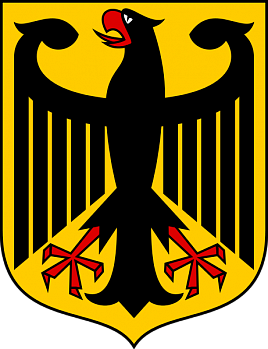 Федеративная Республика Германия
Федеративная Республика Германия
Remarks by acting head of the Russian Federation delegation Andrey Vorobyov at the plenary meeting of the OSCE Forum for Security Co-operation, delivered via video teleconference, April 29, 2020
Mr Chairman,
First of all, I would like to congratulate the Ukrainian delegation on the commencement of its Chairmanship at the OSCE Forum for Security Co-operation (FSC). We regret that Ukrainian Foreign Minister Dmitry Kuleba had to leave today’s meeting, and we hope that Deputy Foreign Minister of Ukraine Yegor Bozhok will inform him of our position, among other things.
We would like to agree with the positive assessment of the Turkish Chairmanship that has been voiced here. We ask Ambassador Rauf Engin Soysal and his professional team to accept our warm thanks for the good work done to promote fruitful dialogue on various, occasionally rather difficult, agenda items. A special thanks is due to the employees of the Turkish mission, who continued with their Chairmanship functions in a lockdown environment and coordinated an important letter on verification. We note the usefulness of the analytical document compiled to summarise the results of the Turkish Chairmanship.
We welcome the German delegation as a new member of the Troika and thank our Czech colleagues, who are leaving the Troika.
Mr Chairman,
The new, Ukrainian-chaired Forum session is starting against the backdrop of a COVID-19 outbreak, which has become a severe test for all countries. What is particularly needed today is a collective reflection on the direction to take in order to ensure a peaceful and safe future for all the OSCE member countries. It is important to keep calm and maintain an even-handed approach in the current highly emotional situation caused by the pandemic. It is time to promote mutual assistance and constructive cooperation, while avoiding any narrow-minded political agendas or preferences. Our historical experience also suggests that we should do this.
It is just a few days before the world celebrates a memorable date, the 75th anniversary of Victory in World War II. In this connection, we would like to emphasise that the idea of it being important to promote trust and cooperation in the name of a common goal, regardless of possible challenges, has become a central element in the joint statement by the presidents of Russia and the United States on the occasion of the anniversary of the meeting on the Elbe of Soviet and US troops. In our time and age, the Spirit of the Elbe is needed as never before in the context of the fight against the 21st-century challenges. We regret that today’s remarks by the US representative fell short of the spirit of the said statement by the two leaders.
Mr Chairman,
We listened with much attention to the Foreign Minister’s remarks on the concept for the Ukrainian Chairmanship. As mentioned by Mr Dmitry Kuleba, the plenary meetings will be held in an unusual digital format, for the first time in the Forum’s history. We are travelling in an unfamiliar terrain, while learning to work under totally new, unprecedented conditions. This is why, as long as we are holding our meetings via videoconference, it is so important to strictly abide by the current OSCE Rules of Procedure, because special rules for emergencies of this kind are yet to be developed. It cannot be ruled out that their violation or leaked videos will call the online format into question.
As of today, confrontational rhetoric prevails over constructive approaches within the Forum, as well as the OSCE. This enhances the role of Chairmanship, which should, by its neutrality, impartiality and commitment to compromise, with account taken of the interests of all member countries, facilitate the OSCE’s return to a culture of mutually respectful dialogue.
Regrettably, the Ukrainian Foreign Minister’s remarks give rise to continued concern about the tenor of further European security discussions. We have witnessed an attempt to peddle an opportunistic, nation-driven, rather than unifying, agenda. Mr Kuleba’s remarks abounded in non-consensual and politicised claims that are far removed from the real state of affairs. We think that any attempts to use the FSC Chairman status in order to undermine the consensual principles underlying the OSCE work are inappropriate. We call on the Ukrainian FSC Chairmanship and our partners to abide by the approaches to OSCE work that were coordinated by all member countries and to follow strictly the OSCE Rules of Procedure.
The statements regarding the situation in eastern Ukraine, which we have heard from the Foreign Minister, are not new. As before, they are used as a cover for Kiev’s continued war against the population in Donbass. The situation is made even more complicated by the fact that Kiev lacks the political will to implement the Minsk Package of Measures approved by UN Security Council Resolution 2202, which is the only internationally recognised basis for conflict settlement in Donbass. Regrettably, we did not hear Ukraine’s high representative say a single word about this document.
Despite all diplomatic efforts, the process of intra-Ukrainian settlement is still marking time. The main reason is that Kiev is stubbornly unwilling to hold a direct dialogue with representatives of Donetsk and Lugansk and encourages belligerent rhetoric, while shifting the blame for all its woes to the neighbouring state. Incidentally, certain Western OSCE members are actively pandering to this approach. Far from assisting the settlement, this only drives the situation further into an impasse.
Kiev continues to stir up tensions in Donbass. For example, they hold live firing exercises and step up the mine threat, including with the use of antipersonnel mines, something that has been confirmed by recent SMM reports. On April 24, for example, monitors found four crates inscribed DFM-90 (directional fragmentation mine) at a road block in Popasnaya manned by the Ukrainian army. At the OSCE, the Ukrainian delegation regularly makes the claim that their country does not produce or use antipersonnel mines (APM). It is an open question then, how the APM’s turned up in possession of Ukrainian service personnel in the armed conflict zone.
As far as the so-called “occupied territories” are concerned, the Ukrainian authorities, both old and new, have exploited this highly convenient myth for six years now. Allegedly, there is no civil conflict; there is just Russian “aggression” against Ukraine. It is a very comfortable stance that helps them to evade the implementation of the Minsk Agreements while posing as a victim rather than the aggressor that sent the army and nationalist battalions, in 2014, to crush the popular protests in the east of the country.
Mr Chairman,
I would like to say a few words about the Forum’s plan of activities for the summer session. Russia has always paid due attention to promoting meaningful and substantive, open and inclusive Security Dialogue on current military and political issues in the OSCE region. We intend to continue contributing to the discussion of the Forum’s traditional, unifying topics that are reflected in the agenda: matters related to small arms and light weapons (SALW) and stockpiles of conventional ammunition (SCA), and the implementation of the UN Security Council resolutions 1540 and 1325.
At the same time, we would like to remind all those concerned in connection with the meeting on the Vienna Document 2011 that our position on prospects for its modernisation under the current circumstances is well known and remains unchanged. We believe that instead of a modernisation that many regard as a panacea, it is necessary to focus on upgrading the implementation of the VD and on concrete efforts to reduce military tensions. Guided by precisely this approach, Russia suggested to NATO countries, in late March, that all military exercises should be suspended in Europe for the duration of the pandemic and that military restraint should be observed.
The plan of activities presented by the Chairmanship includes a discussion of matters related to WMD non-proliferation. The importance of this topic is obvious and determined by both the need to prepare the OSCE’s sizable contribution to the review process under the 1540 Committee, something that we mentioned at the Forum in February, and by the 50th anniversary of the coming into force of the Nuclear Non-Proliferation Treaty, on the occasion of which a joint statement was made not so long ago by the foreign ministers of China, France, Russia, the UK, and the USA. In this connection, we would like to ask the Chairmanship to specify what issues it is proposing to consider during the upcoming meeting.
We were surprised to learn about the plans to hold a Forum meeting dedicated to security issues in the Black Sea and the Sea of Azov, which, according to proposals, should be discussed from the point of view of some “obstacles” to the freedom of navigation and an alleged “militarisation.” We fundamentally disagree with this approach and believe that the upcoming discussion, frankly speaking, makes no sense, if this is its main goal.
It is important to take into account, while considering the expediency of including matters related to private military and security companies in the programme of activities, which matters do not fall within the Forum’s purview (this topic is being considered at other multilateral venues), the persisting wide discrepancy of views among the OSCE member countries and the lack of a legal definition of or common approaches to regulating their activities. For our part, we do not see much practical sense in the Forum shifting its focus on these minor topics, the importance of which is being artificially blown out of proportion. This may only lead to further disagreement.
As we have ascertained, the joint meeting of the Forum and the OSCE Permanent Council on “hybrid” threats is among the highlights of the Chairmanship’s programme. Our Ukrainian partners are well aware that this topic is highly confrontational and falls short of the mandate of the autonomous decision-making bodies like the Forum for Security Co-operation. Its main aim is to promote constructive dialogue, exchange best practices, and look for points of contact in the approaches adopted by member countries. As demonstrated by repeated attempts to discuss hybrid-related topics on various OSCE venues, a professional consideration of this matter always failed, while its discussion degenerated into verbal duels that eventually produced no “added value.” As participants in a “structured dialogue,” we have repeatedly stated that the potential for discussion of this topic has been fully exhausted. This being so, we call on our Ukrainian colleagues to consider the possibility of removing it from the Chairmanship’s programme. For our part, we cannot guarantee that we will take part in this meeting.
We would like to stress that our assessments of the Forum’s plan of activities are primarily aimed at boosting the efficiency and constructiveness of collaboration between the delegations and at freeing the dialogue from outdated and politicised clichés.
Mr Chairman,
We regret that the sense of diplomatic proportion has failed the colleagues from the delegations of the United States, European Union, the United Kingdom, Canada and Georgia, who spoke in the discussion earlier today. It is as futile to try to reassure them as to debate with supporters of the “flat Earth” theory. Their outpourings could be stopped neither by the ceremony inaugurating the Ukrainian Chairmanship, nor by the need to create a positive atmosphere ahead of the consultations of the Normandy Four foreign ministers, which are scheduled for tomorrow.
As regards the military-political situation in Ukraine, which was addressed by the said delegations, we would like to note that Moscow welcomes yet another stage in the release of detainees by the parties to the conflict that took place before the Orthodox Easter. At the same time, Kiev is yet to implement the rest of the resolutions adopted by the Normandy Four at the Paris summit on December 9, 2019. We are convinced that the granting of a special status to Donbass on a permanent and constitutionally guaranteed basis, as prescribed by the Minsk Agreements, will lead to positive shifts in the settlement of the intra-Ukrainian crisis.
Mr Chairman,
We hope that the upcoming Ukraine-chaired plenary meetings will be held within the current FSC mandate and OSCE Rules and will help strengthen the FSC’s role as a platform for a mutually respectful dialogue in the interests of all member countries without exception.
In conclusion, let me reiterate a hope that our Ukrainian colleagues will display a responsible approach to performing their chairmanship functions at the FSC. We count on constructive cooperation with you and the Troika members.
Thank you, Mr Chairman.











